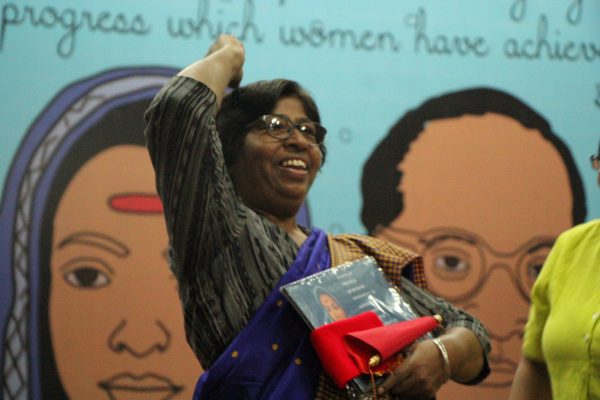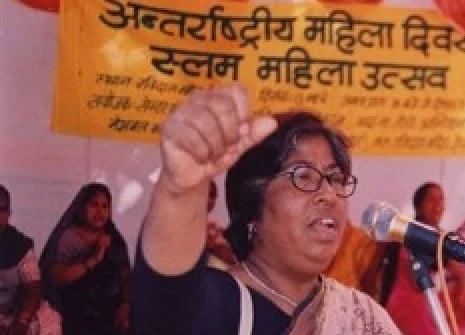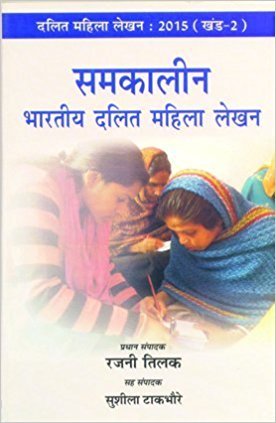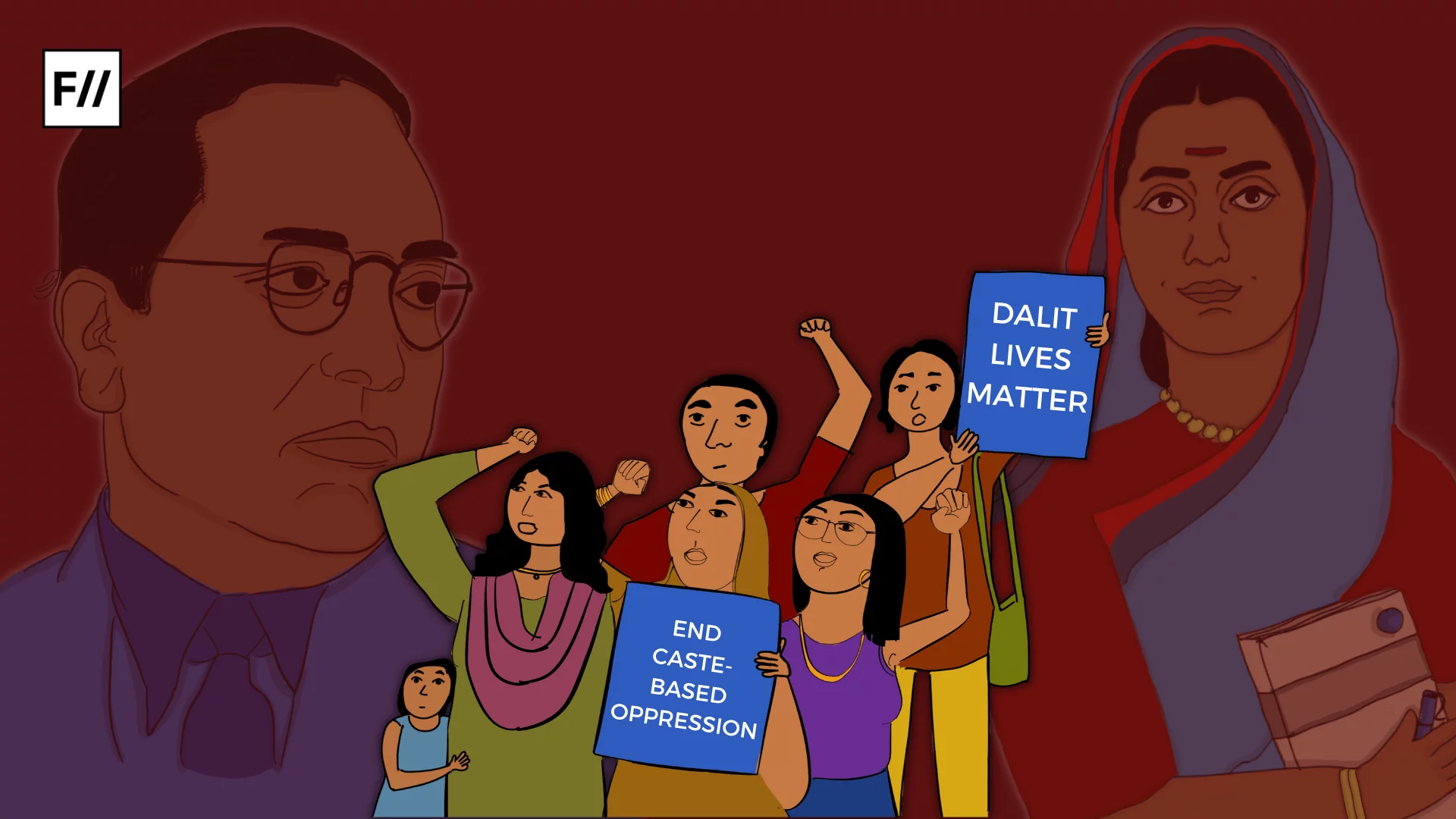Rajni Tilak was a Dalit rights activist, a leading feminist and a prolific writer. She was instrumental in fighting for the rightful space of women, which was very less, in the anti-caste movement, by raising their question in the forefront. She advocated for the rights of Dalit women in the field of literature and fought for the need to organize women and youth at the grassroots level.
Early life and education
Rajni Tilak was born on 27th May 1958 in Old Delhi, to a family having limited means. Her father was a tailor whose ancestors had migrated to Delhi in order to earn a steady source of income. In spite of the many layers of caste and class-based obstacles, her father gave his children the best education that was possible.
After passing her higher secondary education in 1975, she joined the Industrial Training Institute (ITI) for vocational courses like stenography and cutting and tailoring. She had to forego her aspiration to be a nurse due to lack of financial support and focused on equipping herself with skills in order to aid the family financially and look after her siblings.
Activism
Her activism started at ITI when she, with other like-minded friends, organised the Union for Girls to address the discrimination against girls, especially from the deprived sections of society and focused on issues like scholarship, separate sanitation, etc at the campus. It was here that she raised the question of gender on a public platform for the first time.

Image Credit: She The People
In the late 70s, she wrote a letter to the editor of Navbharat Times writing about the incidences of discrimination and policing of women on campus; an issue that women and especially women from marginalized communities in our universities are still struggling with.
She merged this organization with the then-famous left organization – Progressive Student’s Union. She later parted with them on grounds of ideological and political differences: “The left in the name of student mobilization was focusing more on their own agendas of strengthening their political parties and the core issues like casteism and the problems of students from deprived sections were not taken up seriously”.
After the disenchantment with the left, she got initiated into the anti-caste movement and further nourished her anti-caste politics after reading Ambedkar, Chandrika Prasad Jigyasoo, Mary Taylor, etc. She got involved in the Dalit Movement only to realize that the focus was singularly on the issue of caste, ignoring the problem of patriarchy.
Also Read: The Life And Times Of Dnyanjyoti Krantijyoti Savitribai Phule | #IndianWomenInHistory
During the early 80s, Rajni Tilak started a union with Bharthiya Dalit Panthers in Delhi. They opened a Dalit theatre group called Ahahwan and a student’s awareness programme by establishing a Youth Study Circle. During this time, she worked with the anganwadi workers and helpers and formed a union with them at a national level. This union organized about 4000 women to demand regularization of the pay scale.
Her journey with the feminist movement started when she, along with her co-workers, organised a huge agitation in Delhi in the aftermath of the Mathura Rape in 1972. She got in touch with Saheli during this movement.

Image Credit: Sabrang India
In an interview, she mentions that she learnt a lot while working with Saheli, but she became critical of the approach of the mainstream feminist movement which neglected the question of caste as it was led by a certain class of women already enjoying social status. She found a lack of ideal figures like Savitribai Phule, Ambedkar and Jyotiba Phule in the mainstream feminist movement.
She was the Executive Director of the Centre for Alternative Dalit Media, the President of Dalit Lekhak Sangh (Dalit Writers Group), and co-founded the National Confederation of Dalit Organizations (NACDOR). She was also associated with National Federation of Dalit Women (NFDW), Dalit Panthers and Women against Sexual Violence and State Repression (WSS), among others.
Writings

Image Credit: Amazon
Rajni Tilak was a prolific writer having written two collections of poetry: Padchaap (Marching Steps) and Hawa si Bechain Yuvtiya (Restless Women).
She was also the editor of several writings including Samkalin Bhartiya Dalit Mahila Lekhan and Savitribai Phule Rachna Samagr in which she translated, presented and circulated around 10,000 books in North India about the work of Savitribai Phule. She celebrated Phule’s death anniversary on March 10th as Women’s Day and her birth on January 3rd as Education Day.
It is best to conclude her tireless struggle and the role of the Dalit movement in future in her own words: “The Dalit movement’s aim earlier was to fight Brahmanism, capitalism and patriarchy. Our movement is now concerned with urban problems and thereby is restricting itself to employment and reservation. Such an approach can only empower an individual, but it cannot benefit the larger masses of this country. Therefore there is an urgency to redefine the goals and aims of the Dalit movement keeping in view the ideals propagated by our icons”.
In memoriam
Rajni Tilak passed away at the age of 60 on March 30th due to an illness. Her memorial was organized at India International Centre on April 6th. Activist and friend Ajita Rao remembered her as “someone who supported people across ideologies and organizations”.
Anant Kumar, an activist who worked with her, said: “she had the ability to bring down various emotions during an argument and bring consensus among people”. Ruth Manorama, a close friend and president of NFDW remembered her as someone who “used to fight for the cause and with even those who were fighting for the cause”. A prayer meeting was organized at Press Club on 8th April by NACDOR and CADAM, in memory of her.
Also Read: Babytai Kamble: Chronicler Of Dalit Women’s Lives | #IndianWomenInHistory
References:
- Round Table India
- Dalit History Month
- Scroll.in
- She The People
- National Herald India
- YouTube
- Indian Express
Featured Image Credit: Women Speak
About the author(s)
Deachen Angmo is currently an intern with FII.




